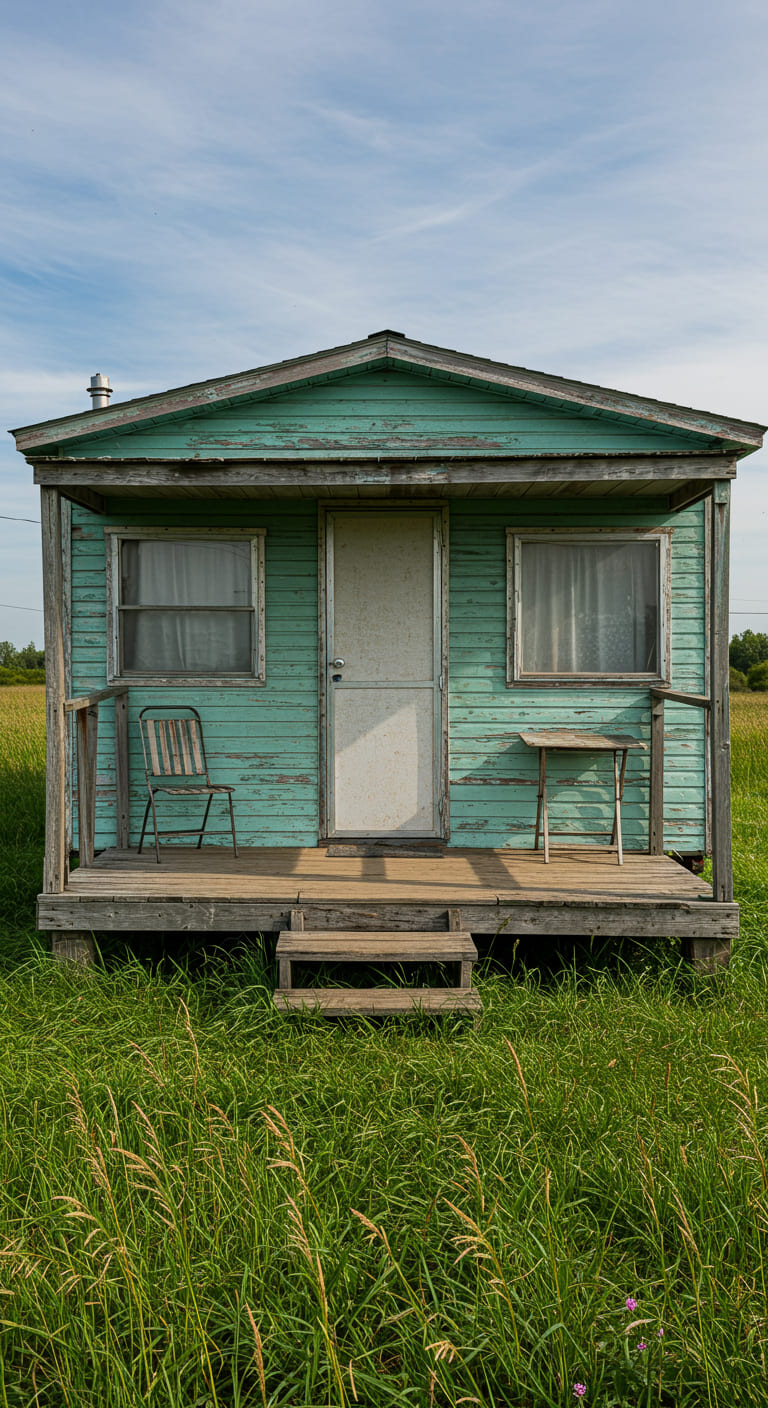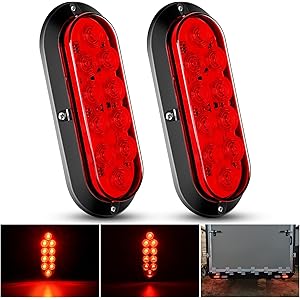As I sit down to write about the common misconceptions surrounding manufactured homes and trailers, I realize that this is a topic close to my heart. Having navigated the waters of homeownership and explored various housing options, I’ve often been confronted by the terms “manufactured home” and “trailer.” Are they the same? What differentiates them? And why does it even matter? In this article, I aim to unravel these questions, shedding light on the truth behind these two types of homes while providing valuable insights to help you make informed decisions.
Understanding the Basics: What is a Manufactured Home?
Manufactured homes, sometimes referred to as mobile homes, are structures that are built in a factory and then transported to a site. They are designed and constructed according to the HUD (U.S. Department of Housing and Urban Development) Code, which ensures that they meet certain safety and quality standards. Unlike traditional homes that are built on-site, manufactured homes come with a set of advantages and disadvantages that make them an attractive option for many.
- Cost-effective: Manufactured homes are generally more affordable than traditional homes.
- Quick to set up: They can be delivered and set up in a matter of days.
- Customizable: Many manufacturers offer various floor plans and designs to choose from.
- Energy-efficient: Modern manufactured homes often come with energy-saving features.
The Trailer Debate: What Exactly is a Trailer?
When I think of the word “trailer,” images of old travel trailers and campers often come to mind. Trailers are typically non-permanent, mobile structures designed for temporary or recreational use. They do not adhere to the HUD Code and can be moved easily from one location to another. This distinction is crucial and is often where the confusion begins.
- Designed for temporary use: Trailers are often used for vacations or as temporary housing.
- Less regulated: They are not built to the same standards as manufactured homes.
- Variety of types: Includes travel trailers, fifth wheels, and pop-ups.
Key Differences Between Manufactured Homes and Trailers
To clarify the distinctions further, I’ve compiled a list of key differences that set manufactured homes apart from trailers:
- Building Codes: Manufactured homes are built to federal standards, while trailers are not.
- Permancy: Manufactured homes are often placed on a permanent foundation, whereas trailers are mobile.
- Living Space: Manufactured homes are designed for year-round living, while trailers typically serve as temporary accommodations.
- Financing Options: Manufactured homes may qualify for traditional home loans, while trailers are often financed as personal property.
Why the Confusion Exists
As I delve deeper into this topic, I realize that the confusion between manufactured homes and trailers stems largely from cultural perceptions and historical context. In the past, mobile homes were often viewed as substandard living options, which has contributed to the ongoing stigma surrounding them.
Moreover, the terminology has evolved over the years. Prior to 1976, many homes that would now be classified as manufactured homes were referred to as mobile homes. The shift in terminology was a move to improve the perception and understanding of these homes. Unfortunately, the old terminology still lingers in many discussions.
Real-Life Case Studies: The Benefits of Manufactured Homes
To illustrate the advantages of manufactured homes, I’d like to share a couple of real-life examples that highlight their benefits:
Case Study 1: The Johnson Family
The Johnsons were a family of four who found themselves priced out of the traditional housing market in their area. After extensive research, they decided to invest in a manufactured home. With a budget-friendly price tag and customizable options, they were able to create a space that perfectly suited their needs. Within a few months, they settled into their new home, which had all the comforts of a traditional house, and were thrilled with their decision.
Case Study 2: Retiree Community
A retiree community known as Sunshine Acres has embraced manufactured homes as an affordable option for seniors looking to downsize. The community offers a range of amenities and a supportive environment, proving that manufactured homes can be ideal for retirees seeking comfort and convenience without breaking the bank.
The Rising Popularity of Manufactured Homes
The trend towards manufactured homes is undeniable. According to the Manufactured Housing Institute, nearly 22 million Americans live in manufactured homes, and this number continues to grow. Factors contributing to this increase include:
- Affordability: With rising housing costs, manufactured homes provide a viable alternative for low- and moderate-income families.
- Flexibility: The ability to customize and relocate makes manufactured homes an appealing option for many.
- Sustainability: Many manufacturers are adopting eco-friendly practices, making these homes more energy-efficient.
Financing Your Manufactured Home
One of the most significant concerns potential buyers have is financing. I’ve learned that there are unique challenges associated with financing manufactured homes compared to traditional homes. However, there are several options available:
- Chattel Loans: These are personal property loans often used to finance manufactured homes that aren’t permanently affixed to land.
- FHA Loans: The Federal Housing Administration offers loans for manufactured homes that meet specific criteria.
- Conventional Loans: Some lenders offer conventional mortgages for manufactured homes on permanent foundations.
Legal Considerations and Zoning Regulations
When considering a manufactured home, it’s essential to be aware of local zoning laws and regulations. Not all areas permit manufactured homes, and some may have specific requirements regarding placement and foundations. I’ve discovered that it’s crucial to conduct thorough research and consult with local authorities before making a purchase.
The Perception Challenge: Overcoming Stigma
Despite the growing acceptance of manufactured homes, there’s still a significant stigma attached. I believe it’s essential to challenge these perceptions by sharing success stories and educating others about the benefits of manufactured living. Here are some steps we can take:
- Advocate for Education: Informing people about the building codes and safety standards can help change perceptions.
- Share Success Stories: Highlighting families who thrive in manufactured homes can inspire others.
- Community Engagement: Hosting events and discussions around manufactured homes can foster understanding and acceptance.
Conclusion: The Truth About Manufactured Homes and Trailers
As I conclude this exploration of manufactured homes and trailers, I hope to have clarified the differences and underscored the advantages of manufactured living. While the two terms are often used interchangeably, they represent distinct types of housing with unique benefits and challenges. Understanding these differences is crucial for anyone considering their housing options.
Manufactured homes are a testament to innovation in housing, providing affordable, customizable, and sustainable living solutions for millions of Americans. By breaking down the stigma and fostering discussions around this topic, we can pave the way for a broader acceptance of manufactured homes in our communities.
Frequently Asked Questions (FAQ)
1. Are manufactured homes safe?
Yes, manufactured homes are built to strict federal safety standards. They undergo rigorous inspections during the manufacturing process to ensure quality and safety.
2. Can I finance a manufactured home like a traditional home?
Yes, there are various financing options available for manufactured homes, including chattel loans, FHA loans, and conventional mortgages.
3. What are the common misconceptions about manufactured homes?
Common misconceptions include that they are of lower quality, not suitable for permanent living, or that they don’t appreciate in value. In reality, many manufactured homes are high-quality and can appreciate like traditional homes.
If you found this article informative and engaging, I encourage you to sign up for our newsletter for more insights and updates. Share this article with your friends and family on social media, and let’s continue the discussion about manufactured homes and their place in the housing market!
Nilight 6 Inch Oval Red LED Trailer Tail Light Surface Mount 2PCS 10 LEDs Waterproof Stop Brake Turn Trailers Lights for Truck RV Boat Bus Lorry Camper Van Caravan
$18.99 (as of November 15, 2025 07:52 GMT -03:00 - More infoProduct prices and availability are accurate as of the date/time indicated and are subject to change. Any price and availability information displayed on [relevant Amazon Site(s), as applicable] at the time of purchase will apply to the purchase of this product.)
Sign up for our newsletter and stay up to date with exclusive news
that can transform your routine!





